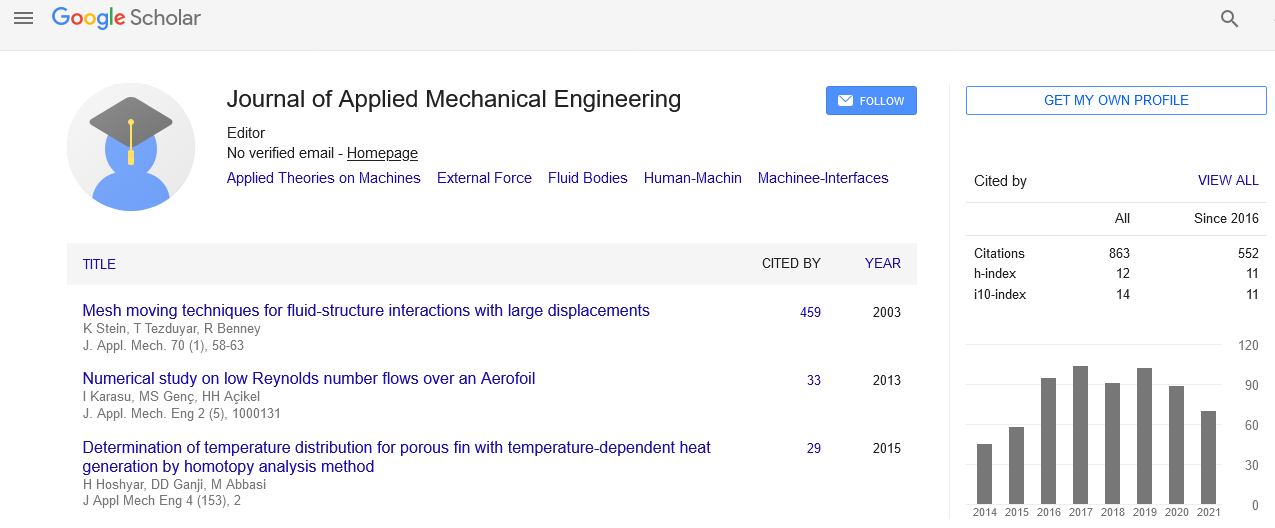Indexed In
- Genamics JournalSeek
- JournalTOCs
- CiteFactor
- RefSeek
- Hamdard University
- EBSCO A-Z
- OCLC- WorldCat
- Publons
- Google Scholar
Useful Links
Share This Page
Journal Flyer

Open Access Journals
- Agri and Aquaculture
- Biochemistry
- Bioinformatics & Systems Biology
- Business & Management
- Chemistry
- Clinical Sciences
- Engineering
- Food & Nutrition
- General Science
- Genetics & Molecular Biology
- Immunology & Microbiology
- Medical Sciences
- Neuroscience & Psychology
- Nursing & Health Care
- Pharmaceutical Sciences
A study of the fluidic movement of the hydrated products from the early carbonation curing in cementitious paste and the effects on the mechanical and porosity properties
Global Summit and Expo on Fluid Dynamics & Aerodynamics
August 15-16, 2016 London, UK
Alex Neves Junior
Federal University of Mato Grosso, Brazil
Scientific Tracks Abstracts: J Appl Mech Eng
Abstract:
In a previous work, the authors achieved the best environmental conditions to capture CO2 in a high initial strength and sulfateresistant Portland cement pastes after 24 hours of carbonation. However the samples that were totally carbonated with the consumption of all Ca(OH)2 had their mechanical properties affected. The samples presented a high initial water to cement ratio in the moment of treatment and considering that they were treated with carbon dioxide at early stages with a high initial porosity in a low relative humidity ambient, the flow of the fluids to the inner parts to outer parts of the samples, affected the distribution and the amount of the hydrated and carbonated products formed. The aim of this work was to analyze by thermogravimetry (TG), derivative thermogravimetry (DTG) and compressive strength test, considering different times of carbonation, the distribution of the hydrated and carbonated products formed in the profile of the samples and the relationship with the mechanical properties.
Biography :
Alex Neves Junior has completed his PhD from Federal University of Rio de Janeiro. At moment, he is Adjunct Professor at the Federal University of Mato Grosso and Member of the Brazilian Association of Thermal Analysis. He was invited to participate in the book "Who is Who in Thermal Analysis and Calorimetry" by the Springer Publishing Company. He is Reviewer of the Journal of Thermal Analysis and Calorimetry and Building Construction and Materials. Two patents are requested by him: “Non-Conventional Thermogravimetry System in Controlled Chamber” and “New System of Non-Conventional Differential Thermal Analysis in Controlled Chamber”.
Email: alexnevesjr@hotmail.com

